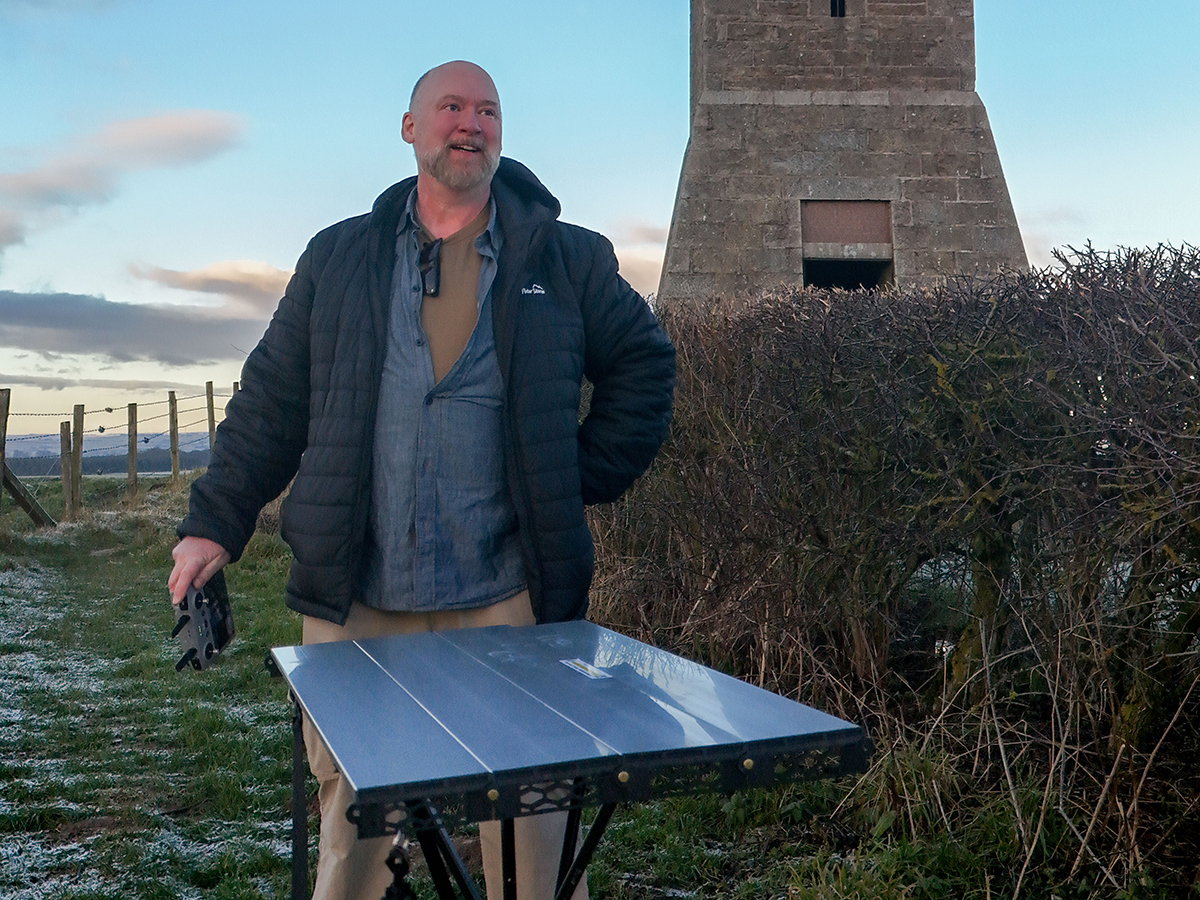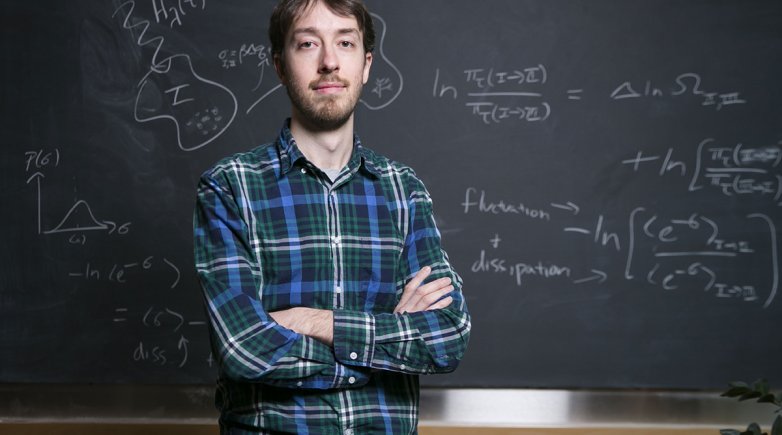Alex Sinton

In October 2020, Alex Sinton ’85 was crabbing off a dock in Chincoteague, Virginia. As he struggled to cut his bait and find a place to rest his drink, he had the thought that a good fishing table would be useful. Then he went on with his day.
That moment, however, stayed with him. For most other people, that would have been the end of the story. But for Sinton, an engineer who specializes in product design, it was the origin of his latest invention, TakTable, a portable field table, and the start of his company, Keystone Outdoor Gear.
“Looking back, I believe I wanted to be an inventor since I was about 7,” Sinton says. “I wanted to be an architect, or an architect for things. I always enjoyed working with my hands, making models and taking things apart.” That desire grew into a long-held dream of owning a business and introducing his products to the world — one that he is now realizing.
Sinton came to the Academy as an upper in 1983. He remembers particularly enjoying the architecture class he took as an elective and making great friends, whom he continues to see every year. “Being among these brilliant people, the banter was just ridiculously funny — still is,” Sinton says. Perhaps most important for his inner inventor, he witnessed firsthand, and internalized, the value of hard work and persistence.
After graduation he attended Wesleyan University and studied cognitive psychology, which involves a lot of computer science. The technology naturally resonated with him, but he also found the neurological element fascinating. “In cognitive science, you learn how the brain works,” Sinton says. “You don’t really have to put effort into learning. You just keep stuffing things in your brain.”
Today, this concept is how Sinton explains his ideation process as an inventor. “What you do is, you just study a problem. You don’t have to be obsessively thinking, How am I going to solve this? You just keep stuffing information into the machine, and then, usually in the shower or when you’re waking up, the solution will eventually appear.”
Wesleyan was enriching, but Sinton says he was still “veering off course,” searching for the right career path. After college, he worked as a broker, hoping to earn enough to finance an inventing hobby. (“I had seen it in a Woody Allen movie,” he jokes.) Thankfully, a better idea materialized: If Sinton became an engineer, he could get paid to invent.
At Oregon State University, Sinton earned his master’s degree in mechanical engineering. He was on his natural path. He took on contract design work, bringing other people’s ideas to life. (Dozens of patents, for products including laparoscopic instruments and sippy cups, bear his name.) With each project, he broadened his expertise — CAD, quality systems, prototyping, testing, manufacturing, supply chain.
To supplement his engineering knowledge, Sinton began pursuing an MBA. When he was laid off from his job in the aerospace industry during the pandemic, he had newfound time to pursue his own product ideas. He soon zeroed in on the little fishing table he had wished for in Chincoteague.
He dived in, testing proofs of concept, and different mechanisms and materials, until he arrived at a prototype that was lightweight, sturdy and versatile. Next came the arduous task of finding a manufacturing partner, settling on materials and arranging testing. The process of patenting the product and bringing it to market took nearly two years, but by November 2022, Sinton had founded Keystone Outdoor Gear and was awaiting his first shipment of tables.
A year later, Sinton has decided to go all in on the dream venture. He sold his house in Doylestown, Pennsylvania, and his car, and kicked off a world tour (alex-sinton.travel-map.net) — for TakTable, and also for himself. “This was my plan for the company all along, to travel around with it,” he says. “It just took a while to get there.”
As Sinton has learned, sometimes you have to go a little off course to find what truly brings you joy and purpose. “All invention comes from a need,” Sinton says. “This is my motivation: to leave some sort of legacy by introducing something new and enduring to the world.”
— Danielle Cantor
Editor’s note: This article first appeared in the winter 2024 issue of The Exeter Bulletin.


